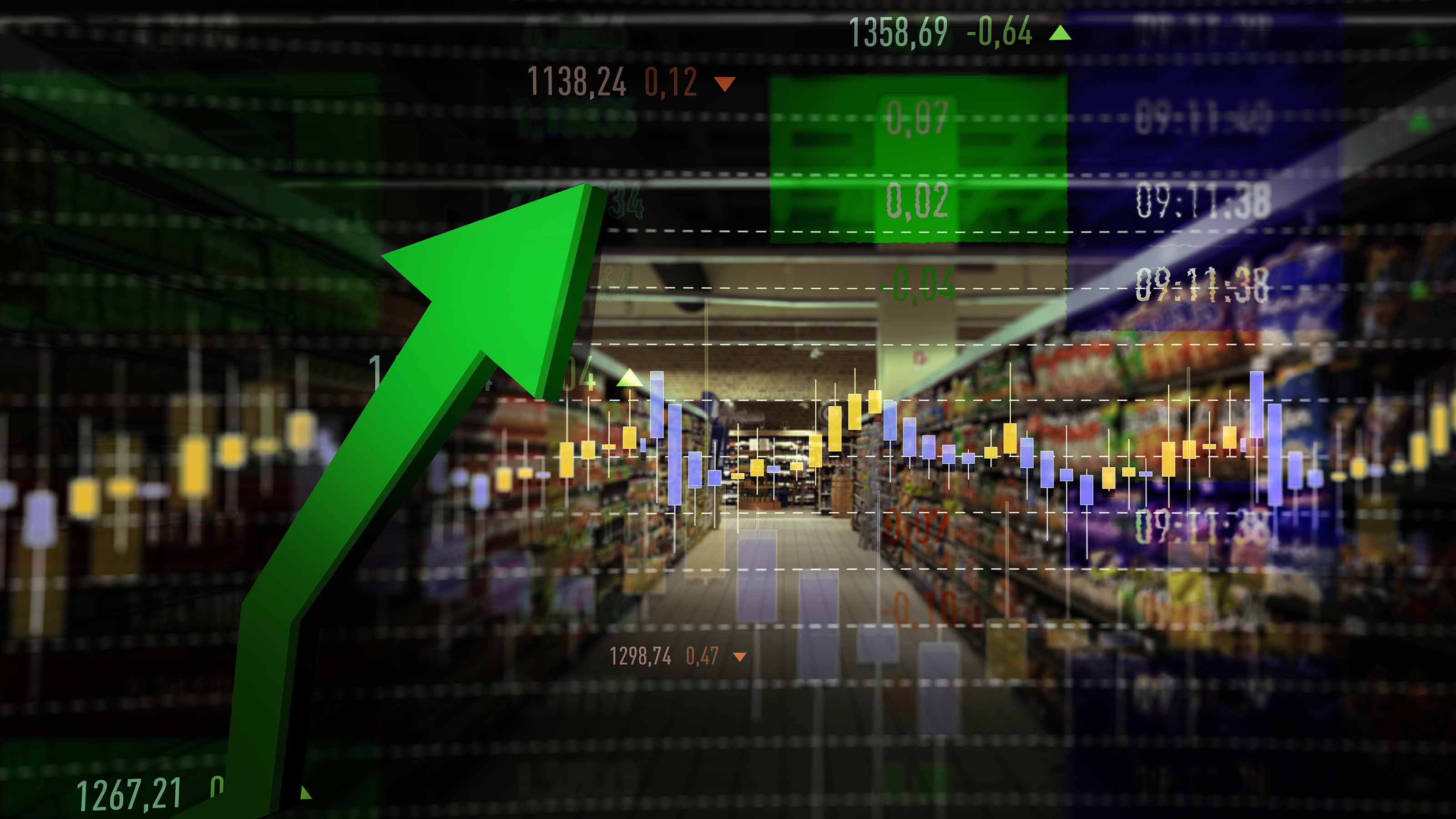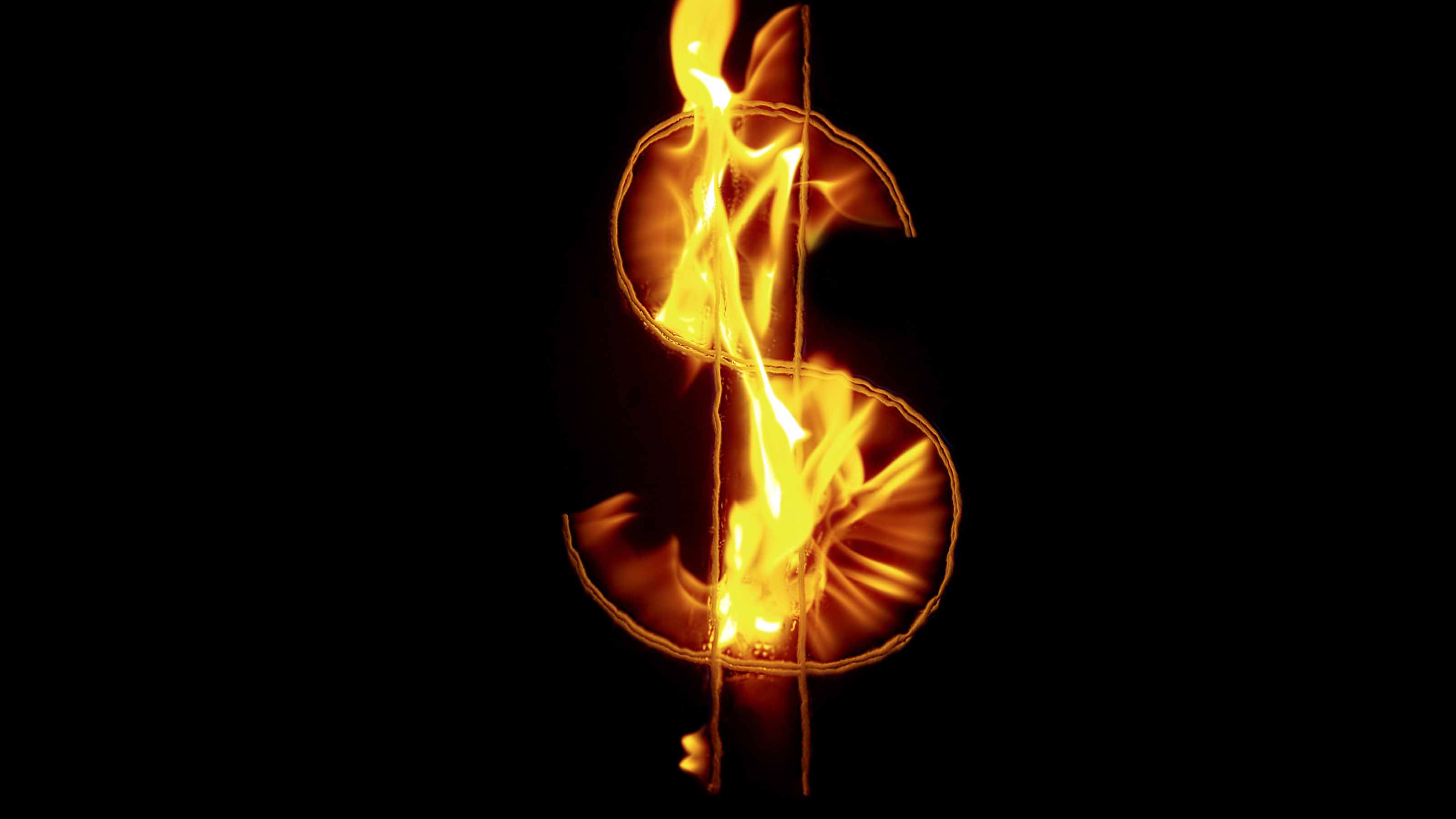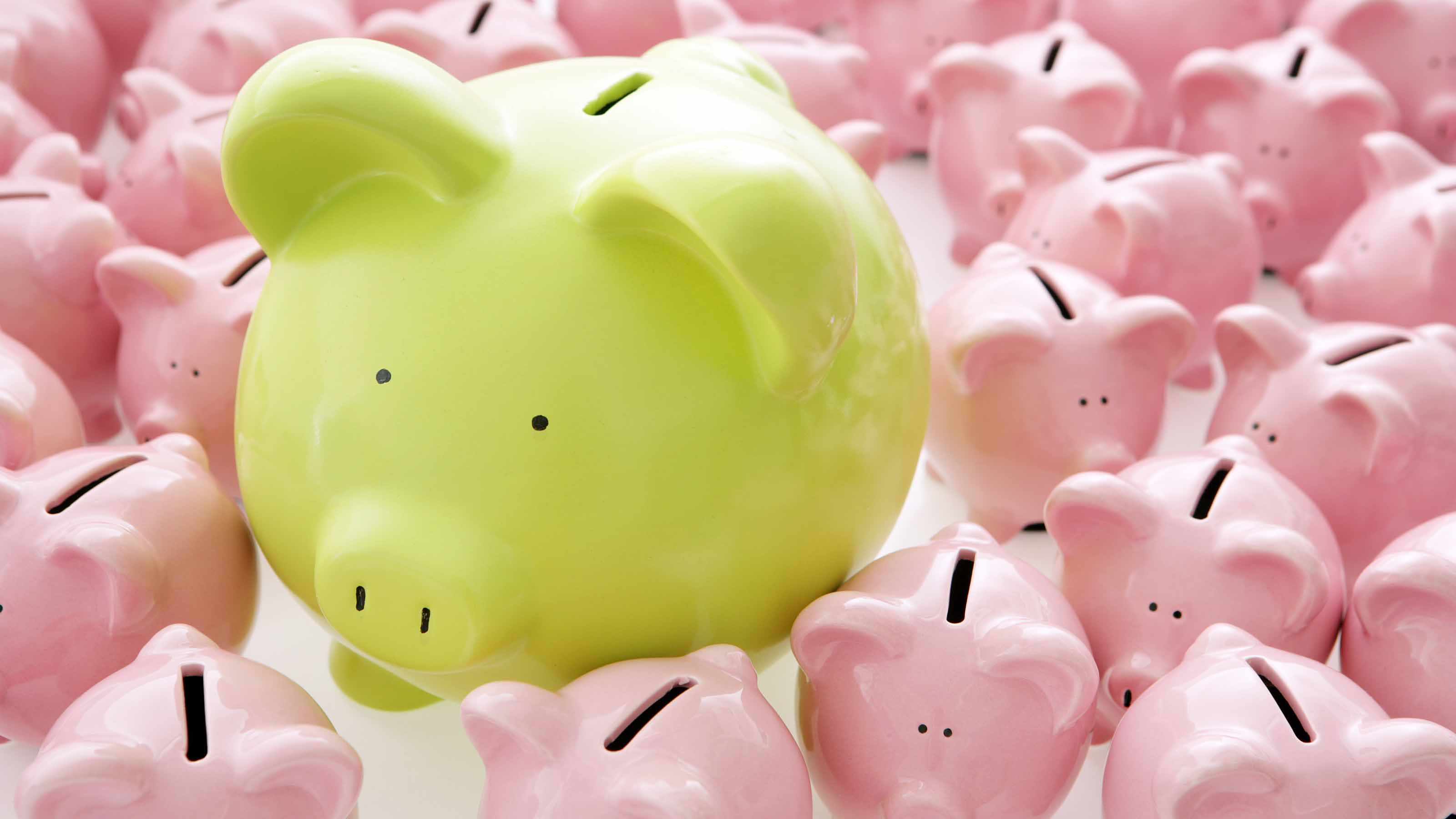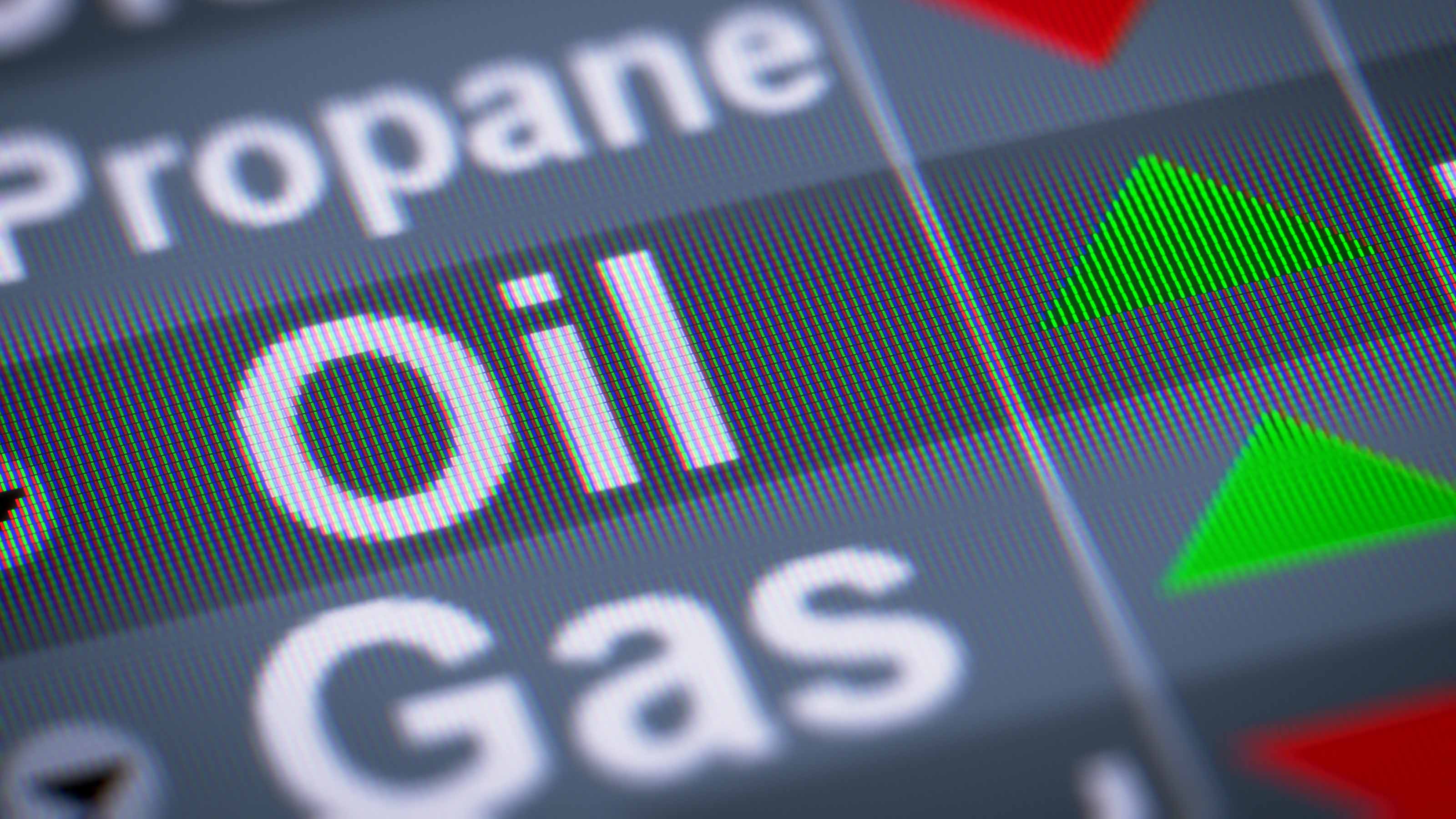10 Best Inflation-Fighting ETFs for Higher Costs
Looking to protect your portfolio from higher prices? Consider these top funds to hedge against inflation.


Profit and prosper with the best of Kiplinger's advice on investing, taxes, retirement, personal finance and much more. Delivered daily. Enter your email in the box and click Sign Me Up.
You are now subscribed
Your newsletter sign-up was successful
Want to add more newsletters?

Delivered daily
Kiplinger Today
Profit and prosper with the best of Kiplinger's advice on investing, taxes, retirement, personal finance and much more delivered daily. Smart money moves start here.

Sent five days a week
Kiplinger A Step Ahead
Get practical help to make better financial decisions in your everyday life, from spending to savings on top deals.

Delivered daily
Kiplinger Closing Bell
Get today's biggest financial and investing headlines delivered to your inbox every day the U.S. stock market is open.

Sent twice a week
Kiplinger Adviser Intel
Financial pros across the country share best practices and fresh tactics to preserve and grow your wealth.

Delivered weekly
Kiplinger Tax Tips
Trim your federal and state tax bills with practical tax-planning and tax-cutting strategies.

Sent twice a week
Kiplinger Retirement Tips
Your twice-a-week guide to planning and enjoying a financially secure and richly rewarding retirement

Sent bimonthly.
Kiplinger Adviser Angle
Insights for advisers, wealth managers and other financial professionals.

Sent twice a week
Kiplinger Investing Weekly
Your twice-a-week roundup of promising stocks, funds, companies and industries you should consider, ones you should avoid, and why.

Sent weekly for six weeks
Kiplinger Invest for Retirement
Your step-by-step six-part series on how to invest for retirement, from devising a successful strategy to exactly which investments to choose.
Inflation continues to be top of mind for investors, with costs for energy, food and other products hovering near levels not seen in 40 years. This has investors seeking out ways to protect their portfolio against higher prices – either with individual equities or inflation exchange-trade funds (ETFs).
And this trend is likely to continue in the near term considering expectations are for inflation to remain red-hot for the foreseeable future – with higher prices only exacerbated by Russia's war in Ukraine.
Rising prices are burdensome on many people, from low-income consumers without much wiggle room in family budgets to small business owners trying to keep down input costs to turn a profit. Higher costs are also troublesome for investors who now must see returns that can match this increase if they want to protect their nest egg.
Think of it this way: If you're only seeing 1% or 2% gains a year on your investments but your food and housing prices are rising 5%, your purchasing power is steadily reduced if the nominal value of your portfolio is moving higher.
In prior years, 5% or 7% returns weren't difficult to come by in the stock market. But with volatility in the S&P 500 and many top stocks in the red for the year-to-date in 2022, investors are looking seriously at alternatives that can help them bust inflation to both protect their nest egg and keep their portfolio growing.
Here are 10 of the best inflation ETFs available to investors today. The funds featured here offer different ways to position your portfolio in an inflationary environment, including via commodity futures, companies with pricing power or Treasury Inflation-Protected Securities (TIPS). Given the variety of funds for inflation, there's likely an option here that will align with your goal to combat higher costs.
Data is as of March 28. Dividend yields represent the trailing 12-month yield, which is a standard measure for equity funds.

Horizon Kinetics Inflation Beneficiaries ETF
- Type: World small/mid-cap stock
- Assets under management: $1.3 billion
- Dividend yield: 0.9%
- Expenses: 0.85%, or $85 annually for every $10,000 invested
The Horizon Kinetics Inflation Beneficiaries ETF (INFL, $33.50) is a tactical fund comprised of equity holdings that are hand-picked to outperform their peers in an environment where raw materials and energy costs are rising. Furthermore, despite being a rather quirky ETF, INFL holds more than $1 billion in assets, so investors can have confidence that there's liquidity when they go to buy or sell shares.
The managers of this small-cap ETF look for asset-light companies with strong pricing power that will help them benefit from inflationary pressures. INFL incorporates a "value-driven" approach to its portfolio, seeking out 20 to 60 firms that "can increase revenues without a corresponding increase in expenses in an inflationary environment," according to its prospectus.
Perhaps unsurprisingly, most of the stocks in this fund are commodity producers like agribusiness giant Archer-Daniels-Midland (ADM), oil and gas company Viper Energy Partners (VNOM) and precious metals miner Franco-Nevada (FNV).
But the Horizon Kinetics Inflation Beneficiaries ETF isn't just focused on conventional stocks with its current portfolio of roughly 40 companies. There's also Intercontinental Exchange (ICE) and Australia's ASX (ASX) that are both major players in commodity-related futures exchanges. These instruments allow commercial users to mitigate their risks of rising input costs through derivatives contracts, and are seeing big volumes in 2022 as a result of inflationary pressures and related hedging.
As a result of this strategy, INFL has surged about 7% so far in 2022, even as the broader stock market has struggled. And if price persists thanks to conflict in Ukraine and the lingering supply-chain disruptions that during the pandemic, this could be one of the best inflation ETFs in the coming months.
Learn more about INFL at the Horizon Kinetics provider site.

Fidelity Stocks for Inflation ETF
- Type: Large-cap blend
- Assets under management: $212.5 million
- Dividend yield: 1.2%
- Expenses: 0.29%
The Fidelity Stocks for Inflation ETF (FCPI, $34.25) is one of the smallest funds on the list, commanding just about $210 million in total assets. However, FCPI is unique in that it doesn't take such a straightforward approach to inflation-proof a portfolio.
Specifically, FCPI invests up to 80% of its assets in stocks held by the Fidelity Stocks for Inflation Factor Index – a benchmark designed to track high-quality mid- and large-cap stocks with attractive valuations. This includes companies that might not be intuitive hedges against rising prices, but tend to hold up well simply through specific strengths in their operations.
Among the fund's top holdings are Apple (AAPL) and Microsoft (MSFT), which may not have much to do with commodities or interest rates but are undeniably entrenched leaders that can weather whatever Wall Street throws their way.
There are also the usual suspects like steel company Nucor (NUE) or energy leader Marathon Oil (MRO). The variety in the 100 or so holdings makes this quirky inflation fund worth a look.
Shares are roughly flat for the year-to-date, making FCPI a better option than conventional broad-based index funds. And it's also worth noting that if for some reason the inflation trade falls out of fashion, FCPI has more foundational picks like those in Big Tech to mitigate this change. For those who are just looking to dabble in inflation ETFs rather than dive in headfirst, this could be a good option.

Invesco DB Commodity Index Tracking Fund
- Type: Commodities broad basket
- Assets under management: $4.1 billion
- Dividend yield: 0.00%
- Expenses: 0.85%
Speaking of diving in headfirst, those who simply want to play rising raw materials costs have the Invesco DB Commodity Index Tracking Fund (DBC, $25.98). This ETF is tied directly to materials via futures contracts, rather than giving investors a stake in the producers themselves.
DBC is among the best commodity ETFs out there both because of its variety in holdings and its size. On the portfolio side of things, this investment is designed to hold a basket of the 14 most heavily traded commodity futures contracts including oil, metals and agricultural products.
That means that the fund is currently energy-heavy, with more than 50% of its assets in related holdings. This includes gasoline, as well as low-sulfur diesel and both Brent and West Texas Intermediate (WTI) crude oil futures. But considering the real inflationary pressures in this category – particularly as the war in Ukraine disrupts supplies from Russia – that may not scare investors off.
Shares of DBC have gained more than 60% over the last 12 months, including a roughly 25% gain since Jan. 1 alone thanks in large part to volatility in energy markets. What goes up could eventually come down, but if you believe that higher commodity prices are going to persist in 2022, then this is one of the best inflation ETFs out there.

Materials Select Sector SPDR Fund
- Type: Natural resources
- Assets under management: $7.8 billion
- Dividend yield: 1.8%
- Expenses: 0.10%
If you like a straight line to materials but are a bit leery of investing in them directly via commodity futures, then consider the Materials Select Sector SPDR Fund (XLB, $88.89). This stock-based ETF holds only publicly traded companies, but is designed to track materials and commodity stocks and cut out the rest of the stock market.
Admittedly, it's not a particularly sophisticated approach as XLB focuses only on the 30 or so largest materials stocks that are components in the broader S&P 500 Index. On top of having a fairly narrow portfolio to begin with, the fund is also weighted by market capitalization, meaning the largest stocks in this short list of companies carry more heft.
As a result, the top three holdings – chemicals giant Linde (LIN), copper firm Freeport-McMoRan (FCX) and gold miner Newmont (NEM) – collectively make up about 30% of the Materials Select Sector SPDR Fund portfolio.
But if you want to play for-profit commodity stocks, the reality is that it pays to go after the big guys anyway thanks to their global footprints and deep pockets. It can be incredibly risky to play small-cap oil explorers or junior gold miners, so a reliance on XLB's short list of big-time companies may not be a bad thing if you're looking to profit from the best ETFs for inflation.

Energy Select Sector SPDR Fund
- Type: Equity energy
- Assets under management: $37.7 billion
- Dividend yield: 3.3%
- Expenses: 0.10%
The Energy Select Sector SPDR Fund (XLE, $76.80) is another SPDR sector fund. It takes a similar approach to XLB, but with an eye towards the oil patch. You get an even smaller list in full, with only the 20 largest U.S. stocks in the energy sector. However, you get the dominant names that most people think of first when they consider an energy investment.
We're talking Big Oil icons like Exxon Mobil (XOM), Chevron (CVX) and ConocoPhilips (COP) to name a few.
Once again, the approach isn't particularly sophisticated or diversified. But if you are looking for inflation ETFs that are laser-focused on rising energy prices, then the Energy Select Sector SPDR Fund might be the fund for you.
Considering that crude oil has surged from under $60 per barrel a year ago to a recent peak north of $120 per barrel – not to mention the conflict in the Ukraine and sanctions against Russia that are all but certain to disrupt energy supplies for the foreseeable future – it could pay to go "all in" on this sector rather than diversify your bets with individual energy stocks.
Furthermore, with about $38 billion in assets, it's clear that many investors out there see XLE as the go-to way to play this trend. If you want a dedicated energy ETF, this is the top choice.

Vanguard Real Estate ETF
- Type: Real estate
- Assets under management: $46.7 billion
- Dividend yield: 2.9%
- Expenses: 0.12%
Sticking with the sector-specific options among inflation ETFs, the Vanguard Real Estate ETF (VNQ, $107.36) is focused on another form of hard assets – physical property and real estate.
As the old quote from Mark Twain goes, "Buy land, they're not making any more of it." And as anyone who has recently pulled up housing prices in their local market should know, one of the biggest areas of price inflation that we've seen over the last year or two has been in property values.
But this isn't a new trend. RenoFi – a home renovation financing service – estimates that housing prices in the U.S. increased almost 49% over the past 10 years and could rise another 16% by 2030. This proves real estate may be a wise bet in the long run regardless of short-term inflationary pressures.
Of course, buying a strip mall or a cluster of townhomes isn't practical for most small-time investors. But VNQ offers the next best thing via a focus on real estate investment trusts (REITs). This special class of U.S. corporations is granted tax benefits in order to allow efficiencies when it comes to the big capital expenses that accompany buying and maintaining property.
Top holdings among its portfolio of about 170 companies include warehouse giant Prologis (PLD), mall operator Simon Property Group (SPG) and medical property owner Welltower (WELL) to name a few.
The icing on the cake is that REITs tend to offer reliable and generous dividends as they pass the rent checks from their properties on to shareholders. At present, VNQ yields 2.9% – in addition potential upside thanks to inflation.

Vanguard Global Ex-U.S. Real Estate ETF
- Type: Global real estate
- Assets under management: $4.7 billion
- Dividend yield: 6.8%
- Expenses: 0.12%
One interesting alternative to the prior fund that's worth pointing out is the Vanguard Global Ex-U.S. Real Estate ETF (VNQI, $51.93). The approach is similar to the Vanguard Real Estate ETF in that it owns commercial real estate companies, apartment complex operators and industrial park firms – except that it excludes stocks based in the U.S., and instead has built a portfolio of nearly 700 names from around the world.
This is an intriguing option among inflation ETFs for a few reasons. For starters, you're not going to get any duplication of existing positions in your typical funds thanks to an "ex-U.S." approach.
Furthermore, many of the stocks on this list are difficult to research independently and are possibly names you've never heard, like German apartment company Vonovia (VONOY) and Australian industrial property operator Goodman Group (GMGSF).
And best of all, the income-focused approach of U.S. REITs is supercharged thanks to these top international stocks, and VNQI yields a stunning 6.8% at current prices. That's more than five times the yield you'll get from the S&P 500!
Right now top geographic allocations include Japan (21.3)% and Australia (10.2%), so the vast majority of assets are in developed markets. If you're looking to invest in real estate as an inflation hedge and want a bit more yield and diversification, consider this international fund.

Vanguard Short-Term Inflation-Protected Securities ETF
- Type: Inflation-protected bond
- Assets under management: $20.2 billion
- SEC yield: -3.0%*
- Expenses: 0.04%
Treasury Inflation-Protected Securities, or TIPS, are a unique instrument that often gain favor during times of rising prices as investors look for options to provide protection against inflationary pressures.
Simply put, they are a form of U.S. Treasury bonds whose principal value increases alongside the consumer price index (CPI). This respected measure of inflation in U.S. households is a key metric watched by the U.S. Federal Reserve in order to quantify how fast prices are rising, so the tie to CPI is a pretty airtight promise that TIPS will perform well under inflation.
The Vanguard Short-Term Inflation-Protected Securities ETF (VTIP, $51.45) is one way to access this strategy without buying individual TIPS on your own. And its unique short-term strategy ensures you won't be betting on long-term inflationary trends, but rather will have your money invested with an eye to the here and now. At present, the average duration of the TIPS in this ETF's portfolio is just 2.6 years.
One word of warning: TIPS, like many instruments issued by the U.S. Treasury, are not designed to deliver gangbuster returns. And VTIP, which sports a negative SEC yield at the moment, clearly isn't an income play. Rather, this is a defensive instrument that is looking towards capital preservation rather than big gains.
As proof, consider that while inflationary pressures have been significant lately, the Vanguard Short-Term Inflation-Protected Securities ETF is flat for the year-to-date.
Still, if what you're looking for are inflation ETFs that offer protection rather than a profit center, VTIP remains a good option thanks to the hard link to rising consumer prices that will protect your money.
* SEC yields reflect the interest earned after deducting fund expenses for the most recent 30-day period and are a standard measure for bond and preferred-stock funds.

The Quadratic Interest Rate Volatility and Inflation Hedge ETF
- Type: U.S. fund inflation-protected bond
- Assets under management: $1.8 billion
- SEC yield: 1.0%
- Expenses: 1.05%
The Quadratic Interest Rate Volatility and Inflation Hedge ETF (IVOL, $25.80) is run by boutique investment shop Quadratic. IVOL is a fixed-income ETF that seeks to hedge against relative interest-rate movements. These shifts can arise from falling short-term interest rates or rising long-term interest rates, often as a result of inflationary pressures.
In other words, IVOL is almost tailor-made for the current circumstances given both inflationary pressures and volatility on the rates front as the U.S. Federal Reserve adjusts monetary policy in 2022.
IVOL is an actively managed fund that has both direct and indirect exposure to a mix of U.S. Treasury Inflation-Protected Securities. The fund also invests up to 20% of its assets in long options tied to the shape of the U.S. interest rate curve.
Now, as far as inflation ETFs go, this one is not designed to blow up with mammoth gains in a single trading day or even a single month. It's defensive by nature, as are most fixed-income funds, and is designed to smooth out the bumps in interest-rate volatility across Treasury markets. The Quadratic Interest Rate Volatility and Inflation Hedge ETF has distributed at least 30 basis points (a basis point is one-one hundredth of a percentage point) monthly since July 2019.
For those worried about the looming pressures of inflation and related volatility in interest rates, IVOL can be a good hedge or insurance policy in the current environment.
Learn more about IVOL at the Quadratic Capital provider site.

SPDR Gold MiniShares Trust
- Type: Commodities focused
- Assets under management: $5.2 billion
- Dividend yield: 0.00%
- Expenses: 0.10%
Last but certainly not least, we have the traditional inflation hedge of gold. Long considered a store of value in tough times and a hard asset that will hold up amid rising prices, many investors consider gold a must-have asset in their portfolio – particularly amid inflationary pressures.
But owning physical gold can be a hassle. You have to store it – and you certainly should buy insurance to protect against theft. And buying or selling is not an easy task, as you can't really pop in at the local branch of your bank to pick up a few bars of bullion or quickly trade in your gold reserves should you need a few bucks for emergency expenses.
The SPDR Gold MiniShares Trust (GLDM, $38.14) offers an exchange-traded alternative, with an ETF that is tied directly to physical gold prices. It's not the largest such fund out there, with roughly $5 billion in assets, but it's among the most cost-effective with just 0.10% in annual expenses, or $10 each year on every $10,000 you invest.
If you want the tried-and-true inflation hedge of gold, you may want to consider a stake in GLDM rather than paying a ton on shipping, storage or processing for physical bullion purchases. This gold ETF is more liquid and will allow you to add or subtract from your position with ease.
Profit and prosper with the best of Kiplinger's advice on investing, taxes, retirement, personal finance and much more. Delivered daily. Enter your email in the box and click Sign Me Up.

Jeff Reeves writes about equity markets and exchange-traded funds for Kiplinger. A veteran journalist with extensive capital markets experience, Jeff has written about Wall Street and investing since 2008. His work has appeared in numerous respected finance outlets, including CNBC, the Fox Business Network, the Wall Street Journal digital network, USA Today and CNN Money.
-
 Ask the Tax Editor: Federal Income Tax Deductions
Ask the Tax Editor: Federal Income Tax DeductionsAsk the Editor In this week's Ask the Editor Q&A, Joy Taylor answers questions on federal income tax deductions
-
 States With No-Fault Car Insurance Laws (and How No-Fault Car Insurance Works)
States With No-Fault Car Insurance Laws (and How No-Fault Car Insurance Works)A breakdown of the confusing rules around no-fault car insurance in every state where it exists.
-
 7 Frugal Habits to Keep Even When You're Rich
7 Frugal Habits to Keep Even When You're RichSome frugal habits are worth it, no matter what tax bracket you're in.
-
 Stocks Sink With Alphabet, Bitcoin: Stock Market Today
Stocks Sink With Alphabet, Bitcoin: Stock Market TodayA dismal round of jobs data did little to lift sentiment on Thursday.
-
 Dow Leads in Mixed Session on Amgen Earnings: Stock Market Today
Dow Leads in Mixed Session on Amgen Earnings: Stock Market TodayThe rest of Wall Street struggled as Advanced Micro Devices earnings caused a chip-stock sell-off.
-
 Nasdaq Slides 1.4% on Big Tech Questions: Stock Market Today
Nasdaq Slides 1.4% on Big Tech Questions: Stock Market TodayPalantir Technologies proves at least one publicly traded company can spend a lot of money on AI and make a lot of money on AI.
-
 Fed Vibes Lift Stocks, Dow Up 515 Points: Stock Market Today
Fed Vibes Lift Stocks, Dow Up 515 Points: Stock Market TodayIncoming economic data, including the January jobs report, has been delayed again by another federal government shutdown.
-
 Stocks Close Down as Gold, Silver Spiral: Stock Market Today
Stocks Close Down as Gold, Silver Spiral: Stock Market TodayA "long-overdue correction" temporarily halted a massive rally in gold and silver, while the Dow took a hit from negative reactions to blue-chip earnings.
-
 Nasdaq Drops 172 Points on MSFT AI Spend: Stock Market Today
Nasdaq Drops 172 Points on MSFT AI Spend: Stock Market TodayMicrosoft, Meta Platforms and a mid-cap energy stock have a lot to say about the state of the AI revolution today.
-
 S&P 500 Tops 7,000, Fed Pauses Rate Cuts: Stock Market Today
S&P 500 Tops 7,000, Fed Pauses Rate Cuts: Stock Market TodayInvestors, traders and speculators will probably have to wait until after Jerome Powell steps down for the next Fed rate cut.
-
 S&P 500 Hits New High Before Big Tech Earnings, Fed: Stock Market Today
S&P 500 Hits New High Before Big Tech Earnings, Fed: Stock Market TodayThe tech-heavy Nasdaq also shone in Tuesday's session, while UnitedHealth dragged on the blue-chip Dow Jones Industrial Average.
